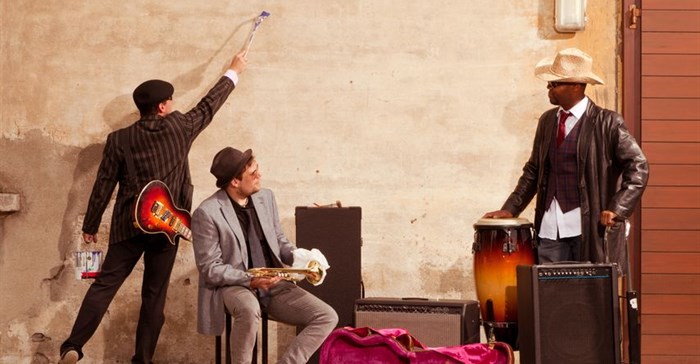What the future holds
I was recently taking my five-year-old son through the motions of learning to form his letters as part of his homework assignment. Specifically, he was getting to grips with curvature and scale of the hump of a lower-case 'd'. Whilst I guided and watched him attempt to perfect his stroke, it occurred to me that all of this pencil pushing may well be obsolete in just a few years from now.

At first, I was a little torn at the thought. On one hand, being both creatively and technologically minded, I began to get excited as my mind wondered at the kinds of technology future generations would literally have at their fingertips. Gesture-controlled technology that measures micro-interactions is already a well-used thread in this newly woven interface of intuitive expression we call 'digital'. Moreover, what tools and mediums would we be expressing ourselves through in 10 years from now? And in this certain future, what place would there be for the likes of such archaic tools as pencils and paintbrushes?
Then, a pang of loss struck me at the thought of a world without pencil or paintbrush. I felt sad. After all, for as long as we have been considered an evolved race, we have tooled-up with stick and bristle, or taken to paper with ink and feather. For thousands of years, these have been our weapons of choice as well as our instruments of love.
As much as we tend to hold on to the familiar, I do believe that evolution happens when we are brave enough to let go a little. The magic happens creatively when we are able to turn things upside-down every once in a while and dare to imagine what could be if our perceptions weren't directed on a linear track, or our imaginations not stifled by attachment.
What would our world look like if our expressions of design and communication were not limited to the single-point contact of a pen? What would our planes of expression be like if we were able to sculpt our visual design with all ten digits upon a canvas of infinite depth? Well, to start, our world would look less constrained.
This is not to say that I do not see the rich value in tools and instruments of old. When I was growing up, my father put a bass guitar in my hands at a very young age. I remember fumbling through 'Wild Thing' as the only bass line in my repertoire for at least six months. Three years and many hard-earned blisters later, I was able to express myself artfully on four strings. Seven years in and I was able to play the guitar as a clear extension of my imagination, without even thinking about how to navigate the notes on the fretboard, or which string to hit when. The point is, I had learned to plug in to a true freedom of expression through my instrument. If we were to start getting serious about lifting the limitations on the means of creative expression on our kids and seeing where we could leverage the current tools of tech, from as young an age as possible, we would be looking at a whole new kind of future.
These kinds of rhetoric are no longer merely abstract musings of a pseudo-stoner-philosophical nature, but actual possibilities that, thanks to the tools of the digital era, we are now able to make real use of right now.
The next question I found myself asking was this: Why then in this day and age am I still running the pencilled-letter routine with my five-year-old?
I believe the answer lies somewhere in understanding our need to connect with a feeling of pure simplicity. Our innate creative nature is drawn to the simplicity of the visceral connection between brush and blank canvas, or between pencil and blank paper. As a creative director, I find that the first step I take in committing an idea to 'paper', is exactly that: I take out my pencil and begin to draw or write on a piece of blank paper. It seems that even with all of the technical know-how under my belt, I am still most comfortable expressing myself first through this medium. From there, the idea is communicated, shared and evolved through its various iterations via multiple platforms and channels, until it becomes the crafted vision it was intended to be.
Ultimately, it seems as though the key to mastering our creative expression, lies in the balance of things. If we can learn to embrace the tools of our future whilst staying rooted to the tools of our past, perhaps then we will truly know what it means to experience freedom of creative expression.





























